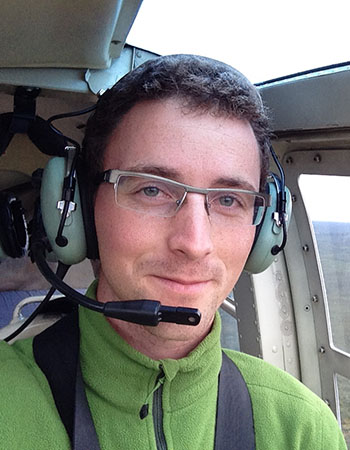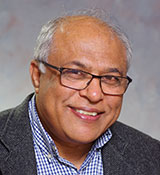WhY Sustainability Studies?
Resources are limited in our world – from water to money to time. This is why sustainability has become a priority across industries and organizations. Discover what drives decision-making, and how those decisions impact our environment, our budgets and the everyday lives of people. With this understanding, you’ll be prepared to identify and implement new solutions to current challenges, both locally and globally.
Sustainability Studies at Augustana
Explore the interconnected, and often complex, nature of sustainability while taking advantage of Augustana’s experiential learning opportunities. Students can apply their learning in the field, abroad or with local organizations like the Battle River Watershed Alliance or the Food Artisans of Camrose County. Better yet – throughout your degree you will develop in-demand research, critical thinking, communication and collaboration skills that will become invaluable in your future career.
Program Information
Sustainability Studies is available as a:
- Major in the Bachelor of Arts degree program
Academic Innovations
All programs at Augustana include a wide-ranging liberal arts and sciences core, taught within our unique “3-11” calendar.
Careers
Your insights in the economic, social and environmental perspectives of sustainability gained in an undergraduate degree majoring in Sustainability Studies from Augustana make you the perfect candidate for careers like:
- Environmental Resource Management
- Financial Analyst
- Heritage Interpreter
- Land Reclamation Specialist
- Corporate or Municipal Sustainability Officer
Sustainability Studies AlumnUS

Environmental Scientist
“Between my experience at Augustana and summer jobs,” Joël says, “I received a broad education and practical experience. I wasn't pigeonholed into one field or task, and I got a good introduction to many environmental topics.”
Course Highlights
An introductory course in the theoretical and applied aspects of sustainability as it relates to key categories of energy, food, water, pollution, waste and their impacts on the environment. Current technological advances and emerging initiatives based on lowering our ecological footprint provide a basis for examining sustainability science as it relates to environmental challenges in a changing world.
Examination of the theories of international trade and investment, the international monetary system, and the multinational firm.
Examination of scientific principles and concepts underlying parks, wilderness and other protected area systems with emphasis on Canada. Topics include history, philosophy, conceptual frameworks, roles in sustainability, and types of biological and geographic designations.
Introduction to sociological perspectives on social problems. Various theoretical orientations are applied to contemporary Canadian social issues such as poverty, gender issues, Indigenous rights, human sexuality, and regionalism.
Investigation of the philosophical and social issues related to technology and the environment. The natural/artificial distinction, different senses of environment and the ways we understand, package, and manage nature form the foundation of the course. Issues in environmental ethics are also addressed. Thinkers may include Marx, Heidegger, Marcel, Borgmann, Winner, Singer, Regan and others.
Related Information

Glen Hvenegaard, PhD
Dr. Hvenegaard's research interests include environmental interpretation, protected areas, ecotourism, bird biogeography, and rural sustainability.
Visit their website
Greg King, PhD
Dr. King's research interests include dendrochronology, forest ecology, urban ecology and northern ecosystems.
Visit their website
Varghese Manaloor, PhD
“Courses I have taught include applied microeconomics, econometrics, statistics for business and economics, environmental economics, and ethics in business and economics.”
Visit their website
Tara Milbrandt, PhD
Tara teaches in the areas of sociological theory (classical, modern, and contemporary), introductory sociology, and contemporary culture (film, community).
Visit their website
Geraint Osborne, PhD
Geraint's research and teaching interests are in the areas of crime, deviance and social control, political sociology, historical sociology, and qualitative methods.
Visit their website